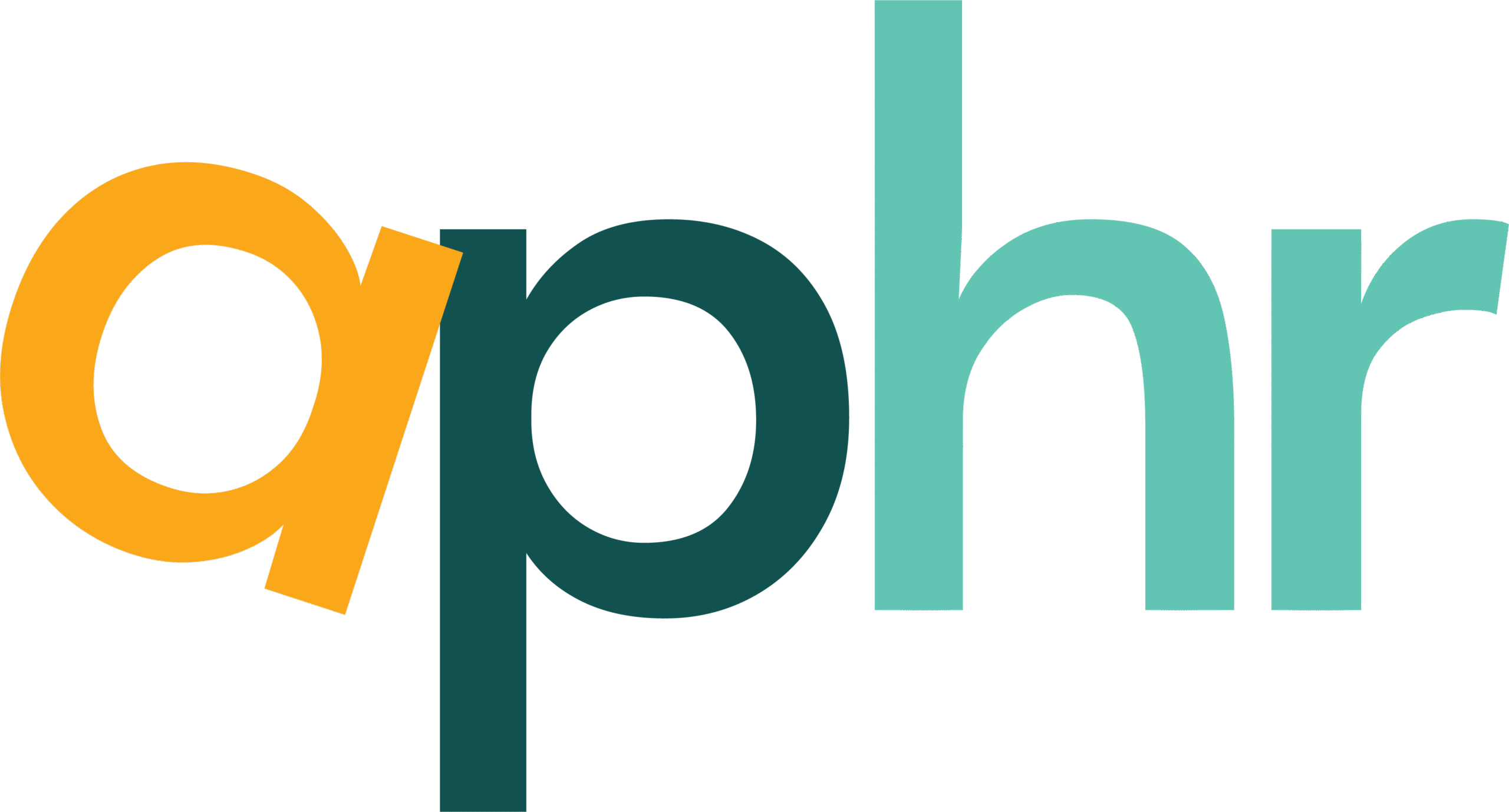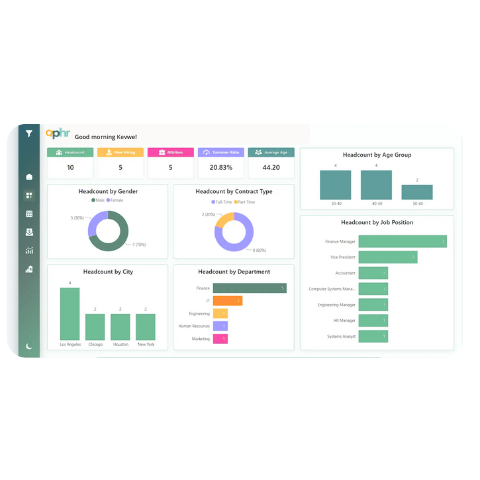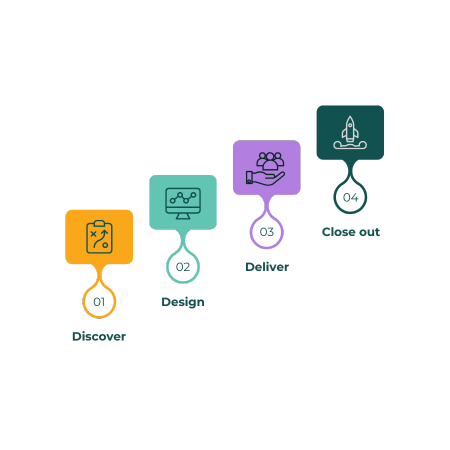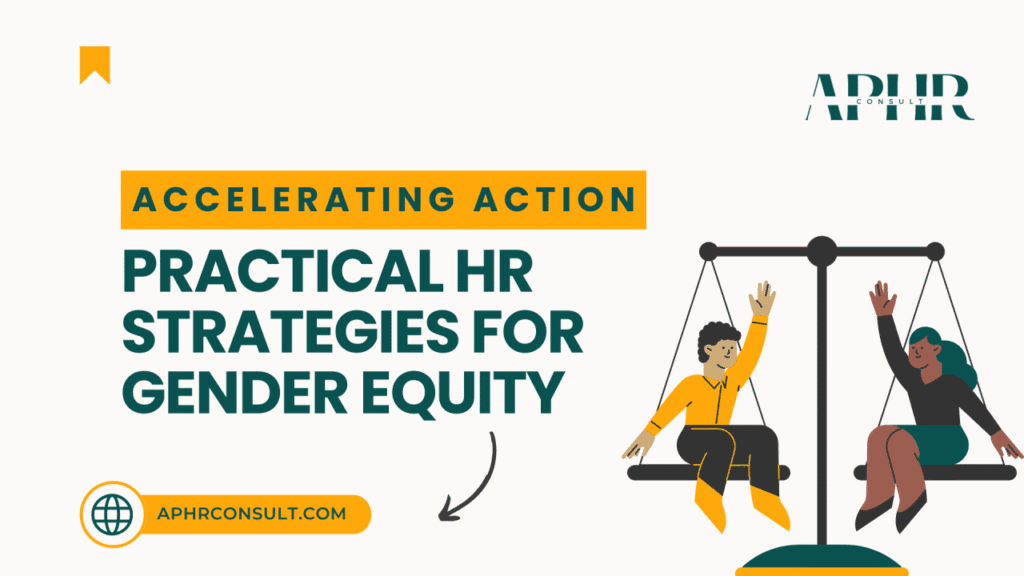Accelerating Action: Practical HR Strategies for Gender Equity
International Women’s Day (IWD) 2025 calls for bold steps under the theme ‘Accelerate Action’. This year’s theme is striking for various reasons. We’ve heard about taking action; however, accelerating action tells us that just taking action is not enough. Despite progress, gender inequities persist in workplaces worldwide, from wage gaps to leadership barriers. Implicit biases still shape hiring decisions, promotions, and salary negotiations, leading to systemic disadvantages for women in the workplace.
At APHR, we believe that organizations must go beyond hashtags, fancy IWD campaigns, and lengthy policy documents and take real, actionable steps to drive gender equity in all areas. People management is multi-faceted and deeply complex, requiring businesses to adopt a holistic approach to diversity and inclusion. This post is designed with HR professionals and business leaders in mind, highlighting practical HR strategies that can be implemented to create a truly inclusive and equitable workplace.
1. Implement Pay Grading Transparency & Close Wage Gaps
Conduct comprehensive salary audits across teams, roles, and pay grades within your organization to identify possible disparities. If you’re a small business or a startup, establishing a pay grading structure that is commensurate with your organization’s pay capacity can help you map talents into appropriate salary brackets based on pre-set criteria which is especially important during hiring, employee promotions and salary review periods. To do:
● Establish clear pay bands for all roles to eliminate pay disparities.
● Ensure performance-based salary adjustments are standardized and free from gender bias.
● Foster a culture of transparency by making salary structures more accessible and understandable to employees.
By creating structured pay policies, businesses can promote fairness and equity, ensuring that compensation is based on merit and qualifications rather than gender biases.
2. Develop Inclusive Hiring & Promotion Policies
Bias often starts at the hiring stage, limiting opportunities for women before they even step into the workplace. To prevent this:
● Ensure job descriptions are gender-neutral and free of language that may discourage certain groups from applying.
● Implement structured interviews with scorecards that assess candidates based on technical competencies and behavioral skills. If your workforce is leaning heavily towards one gender, set diversity hiring goals and actively source competent, diverse talent to fill gaps.
● Audit promotion and career progression policies to ensure women have equal opportunities for leadership roles. Organizations that create clear, structured hiring and promotion processes benefit from a more diverse and dynamic workforce, which enhances productivity and innovation.
3. Offer Flexible Work Arrangements & Parental Leave
Studies show that women continue to bear the majority of domestic responsibilities, often juggling majority of their household tasks and caregiving alongside their professional duties. As a result, many women experience higher burnout rates, leading to career stagnation or early exits from the workforce. To accelerate actions towards the female gender, we must create systems and structures that help combat this. Some of the :
● Offer hybrid/remote work options to support work-life balance, enabling women to thrive professionally without compromising their personal lives.
● Implement paid parental leave policies for both men and women to encourage shared caregiving responsibilities. In Nigeria, labour laws mandate 12 weeks of maternity leave at 50% salary. However, businesses can expand on this by offering fully paid maternity leave and introducing paternity leave to promote gender equality in caregiving.
● Normalize career progression for employees who take parental leave, ensuring that time off for caregiving does not negatively impact promotions or salary adjustments.
Companies that embrace flexible work policies not only retain top female talent but also create an environment where employees—regardless of gender—can perform at their best.
4. Create Safe Reporting Mechanisms for Workplace Discrimination
Workplace harassment remains a significant barrier to gender equity, with data showing that 64% of female employees aged 19 to 39 report experiencing some form of harassment, 79% encountering verbal harassment, and 46.7% facing unwanted advances. These alarming statistics highlight the urgent need for safe reporting mechanisms especially in the workplace.
Organizations must establish confidential reporting channels where employees feel safe to report harassment or discrimination without fear of retaliation. Training managers and team leaders to recognize and address gender biases is essential, as is conducting regular company-wide training on gender equity, inclusivity, and respectful workplace conduct. Developing clear and swift disciplinary actions for policy violations also helps reinforce a culture of accountability and safety. When employees, particularly women, feel safe and supported, they are more likely to engage, innovate, and contribute meaningfully to their organizations.
5. Invest in Women’s Leadership Development
Companies that invest in women’s leadership programs are more likely to retain and elevate female employees into influential roles. By doing so, organizations create a pipeline of future leaders, reduce attrition and foster a more equitable corporate culture. You can invest in the development of your female workforce by:
● Offering leadership training programs designed to equip women with strategic skills and confidence.
● Sponsoring female employees for industry conferences, networking events, and career development workshops.
● Partnering with women’s professional organizations to provide mentorship and peer support.
● Creating internal sponsorship programs where executive leaders actively advocate for high-potential women within your organization.
When businesses champion female leadership, they enhance decision-making, increase profitability, and foster a more innovative workforce.
Gender equality is not just a moral imperative but a business advantage—organizations with gender-diverse leadership report higher profitability and innovation. To truly #AccelerateAction, businesses must integrate forward-thinking and globally recognized HR practices into their core operations.
Are you ready to take action? APHR provides customized HR solutions to help organizations and businesses create truly inclusive workplaces, positioning them for greater growth and long-term sustainability.
📌 Book a free consultation with us today!
Written by: Ojotule Opaluwa-Alagbe
Similar Articles
FROM HUMAN RESOURCES TO HUMAN IMPACT: HR as the Engine …
The Cost of Losing Top Talent and How to Prevent …
INTERNATIONAL DAY OF EDUCATION: Why Employee Training and Development is …




